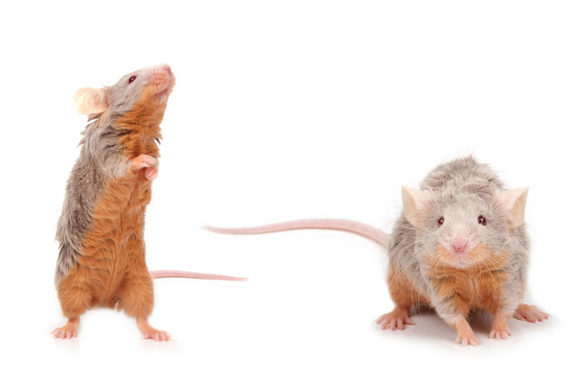Baby Mice Learn Mom's Smell to Suckle

Newborn mice need to learn the smell of their moms' natural perfume to suckle and survive, according to new research.
Previous studies on rabbits suggested that for mammal babies, a mom's pheromones (chemical signals used to communicate in some way) triggered a hard-wired response to latch on. But the new study, published Oct. 4 in the journal Current Biology, found that the smell is instead learned. At birth, a newborn mouse is exposed to the odor of its mother's amniotic fluid and that same scent in the mom's signature smell causes the baby to start suckling, the researchers said.
"Surprisingly, unlike the rabbit, we found no evidence of a classic pheromone in the mice," Lisa Stowers, of The Scripps Research Institute, explained in a statement. "Instead, we found that the pup 'learns' the individual scent blend of the mom. Every mom is likely to have a different signature odor."
In the study, Stowers and her colleagues introduced newborn mice delivered by C-section to their mom's breast, which had been cleaned and then smeared with one of the liquids a baby would smell at birth: amniotic fluid, the mother's saliva, breast milk and urine. The team found that the mice only initiated suckling when their mom's breast smelled like amniotic fluid. Further tests showed there was not a pheromone present in the fluid, suggesting the signature odor must be learned.
The researchers said the results hint that different mammal species have developed different strategies to ensure the onset of nursing, and the findings may have implications for the behavior of other animals, including humans.
"Human pheromones have not been conclusively identified and their existence remains controversial," Stowers said. "If the mouse can effectively use this mechanism to release such an important behavior, it is possible that signature odors underlie the release of other apparently innate behaviors; in mouse or even humans."
Follow LiveScience on Twitter @livescience. We're also on Facebook & Google+.
Get the world’s most fascinating discoveries delivered straight to your inbox.
 Live Science Plus
Live Science Plus






